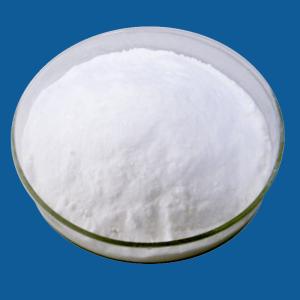
 CONTACT
CONTACT
- Linkman:Linda Yao
- Tel: +8618231198596
- Email:linda.yao@dcpharma.cn
- Linkman:CHARLES.WANG
- Department:Overseas
- Tel: 0086 0311-85537378 0086 0311-85539701
High Quality ε-Polylysine Hydrochloride Manufacturer,Inhibition of Microbial Growth
TIME:2024-12-04
ε-Polylysine hydrochloride demonstrates significant inhibitory effects on microbial growth, attributable to its unique chemical structure and bioactivity. It exhibits broad-spectrum antimicrobial properties, effectively inhibiting Gram-positive bacteria, Gram-negative bacteria, yeasts, molds, and even viruses. This versatility has made it widely applicable in industries such as food, cosmetics, and pharmaceuticals.
The inhibitory effects of ε-Polylysine Hydrochloride on microorganisms are achieved through the following mechanisms:
·Disruption of Cell Membrane Structure: As a polycationic antimicrobial peptide, ε-polylysine hydrochloride binds to anionic active sites on microbial cell membranes, disrupting their structure and functionality. This disruption causes imbalances in the exchange of substances between the cell's interior and exterior, ultimately leading to cell death.
·Inhibition of Cellular Metabolism: ε-Polylysine hydrochloride also suppresses microbial metabolic activities, such as energy metabolism and DNA synthesis. This suppression further weakens the ability of microorganisms to grow and reproduce.
Different microorganisms exhibit varying sensitivities to ε-polylysine hydrochloride, resulting in differing MIC values. For example:
·For Escherichia coli, the MIC may be approximately 40 mg/kg.
·For Staphylococcus aureus, the MIC may be around 50 mg/kg.
These values indicate that once a specific concentration is reached, ε-polylysine hydrochloride effectively inhibits the growth of these microorganisms.
Several factors can affect the antimicrobial performance of ε-polylysine hydrochloride:
·Type of Microorganism: Different microorganisms have varying levels of sensitivity, leading to differences in efficacy.
·pH: ε-Polylysine hydrochloride maintains strong antimicrobial activity within a pH range of 2 to 9, though its efficacy may vary depending on the specific pH level.
·Temperature: ε-Polylysine hydrochloride is highly stable at elevated temperatures, retaining its antimicrobial properties even under high-temperature conditions.
ε-Polylysine hydrochloride is used as a preservative in meat products to effectively extend shelf life. By inhibiting the growth and reproduction of microorganisms, it reduces spoilage and deterioration during storage, maintaining the freshness and quality of meat products.
Beyond food preservation, ε-polylysine hydrochloride has promising applications in cosmetics and pharmaceuticals, offering antimicrobial protection and enhancing product stability.
ε-Polylysine hydrochloride is highly effective in inhibiting microbial growth due to its broad-spectrum antimicrobial activity, unique mechanisms of action, and stability under various conditions. Its versatility makes it a valuable ingredient across diverse fields, including food preservation, cosmetics, and medicine.
- Tel:+8618231198596
- Whatsapp:18231198596
- Chat With Skype







